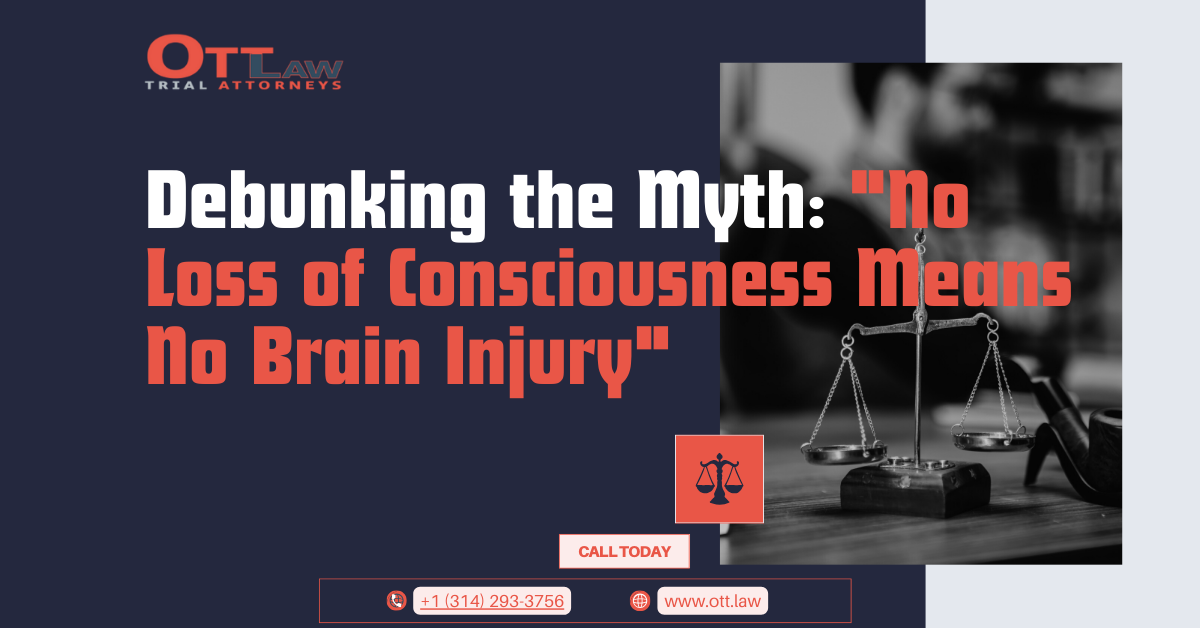Traumatic brain injuries (TBIs) are complex and often misunderstood, particularly in legal settings where the stakes are high, and lives are irrevocably altered. One prevailing misconception is that the absence of loss of consciousness (LOC) post-accident automatically rules out a TBI. This perspective is both medically and legally flawed and needs comprehensive debunking.
Understanding Traumatic Brain Injuries
TBIs can range from mild concussions to severe, life-altering conditions. They occur when an external force injures the brain, either from a violent blow or jolt to the head or body or an object that penetrates brain tissue, such as a bullet or shattered skull piece.
Symptoms of TBIs
The symptoms of TBIs can vary, including:
- Physical Symptoms: Headaches, dizziness, loss of coordination, speech problems, blurred vision, and others.
- Cognitive Symptoms: Memory loss, difficulty concentrating, slowed thinking, and more.
- Emotional and Mood Symptoms: Depression, anxiety, mood swings, irritability, and other behavioral changes.
Myth Debunking: No LOC Means No TBI
While loss of consciousness is a significant symptom of TBI, it is neither the sole nor the definitive indicator. Various research bodies and medical organizations offer evidence against this myth:
- Research Findings: Studies show that many individuals with TBIs did not lose consciousness after their injuries. Moreover, some experienced severe consequences from their injuries, even in the absence of LOC.
- Reputable Medical Opinions: As noted earlier, organizations like the CDC, American Congress of Rehabilitation, and the American Academy of Neurology do not necessitate LOC for a TBI diagnosis.
Legal Implications
In legal battles involving TBIs, the narrative of “no LOC equals no TBI” can cause grave injustices:
- Underestimating Injuries: Just because a victim did not lose consciousness doesn’t mean they aren’t grappling with debilitating effects of a brain injury.
- Financial Repercussions: Victims might be denied adequate compensation due to the misconception that they aren’t “injured enough.”
- Life Alterations: The consequences of TBIs can be long-term, requiring therapy, medication, lifestyle changes, and sometimes, lifelong care.
Cases in Point
Historical cases and recent examples illustrate the dangerousness of equating LOC with the severity of TBIs:
- Phineas Gage’s Case: This historical case is a testament to the unpredictability of brain injuries. Gage experienced a severe TBI without LOC but had pronounced personality and behavioral changes afterward.
- Natasha Richardson’s Tragedy: This modern-day example reinforces that initial appearances can be deceiving. Richardson’s seemingly minor head injury without immediate LOC rapidly deteriorated, leading to her tragic death.
Conclusion
Loss of consciousness is just one of many potential symptoms of a traumatic brain injury. Relying solely on this criterion is both medically and legally misguided. Both medical practitioners and legal professionals must adopt a more nuanced, comprehensive approach when assessing TBIs, ensuring that victims get the care, understanding, and justice they deserve.

